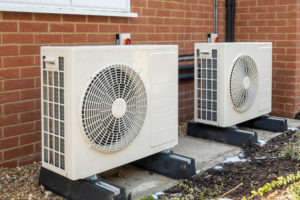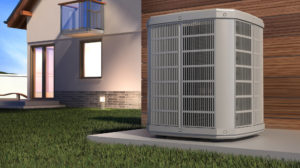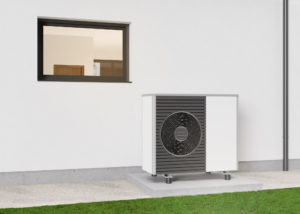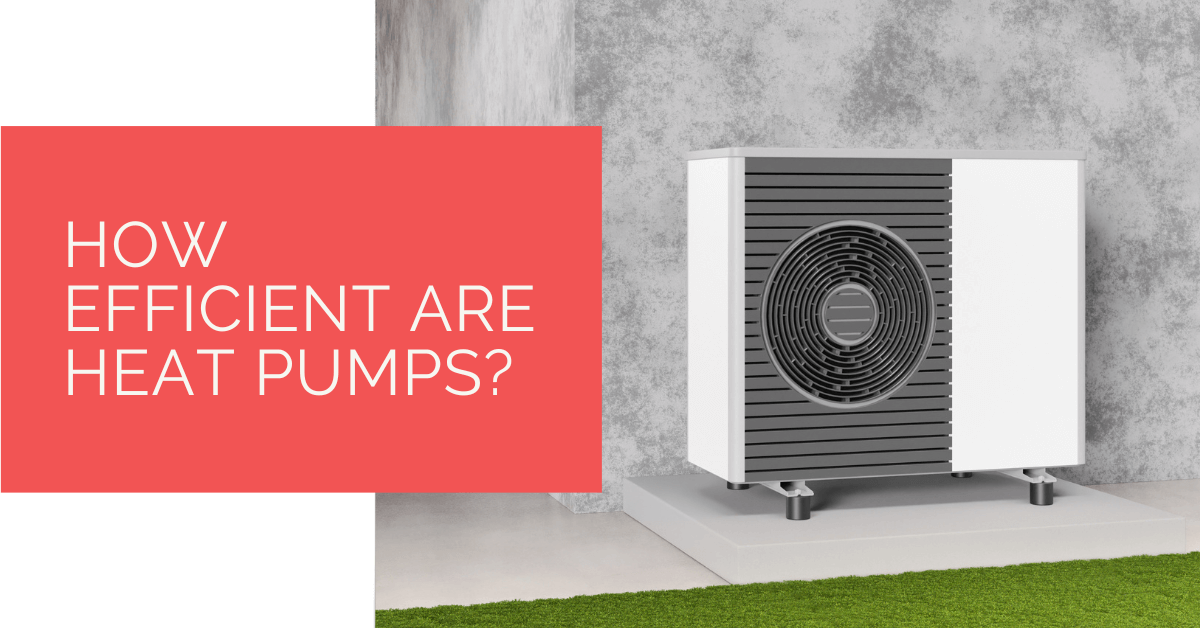Heat pumps have been utilised for ages to deliver efficient heat, cooling, and, in certain instances, hot water to dwellings. In reality, you probably deal with this technology regularly. Refrigerators and air conditioners use the same operating principles and technology.
This article describes the fundamentals of how heat pumps work and discusses several types of heat pumps available on the market.
Contents
Key Takeaways
- Heat pumps are electrically powered devices that transfer heat from lower to higher temperatures, making them efficient for heating and cooling homes.
- The efficiency of heat pumps depends on factors like the type of fuel being replaced, electrical rates, heat pump installation quality, geographic location, and temperature variations.
- Different types of heat pump systems, such as air source and ground source, have varying levels of energy efficiency and operational costs, making it essential to choose the right system for your needs.
How Do Heat Pumps Work
Heat pumps are electrically powered devices that transfer heat from a lower temperature location (a source) to a high-temperature location (a sink).
Consider a slide to help you comprehend this concept. You can effortlessly go from the top to the bottom of a slide. But taking the same route from the bottom to the top of the slide will need far more effort and energy. This happens because you are moving in the direction of natural motion.
Similarly, heat flows naturally from areas with higher temperatures to those with lower temperatures. A heat pump employs extra electrical energy to counteract the natural flow of heat and transfer energy from a cooler to a warmer location.
The source’s temperature decreases once energy is removed from the source. If the house is considered the source, heat generated will be extracted to chill the area. This is how a heat pump performs in cooling mode and how air conditioners and refrigerators operate.
Similarly, the temperature of a sink rises when energy is supplied. If a residence is utilised as a sink, heat generated will be added to the area. A heat pump is reversible, so it can work for heating and cooling your house, offering comfort throughout the year.

How Heat Pump Installation Saves Money
Although the compressor and heating pumps need the power to operate, they use less heat than they transfer from the outside to the inside. The ratio between the quantity of moving heat energy and the amount of electrical energy utilised depends on the inside and outside temperature. Hence, it fluctuates continuously throughout the year as outside temperatures vary.
- Several variables will determine how this may affect your energy cost, including:
- The type of fuel you are substituting and its price.
- Your electrical rate.
- Your heat pump installation and its overall efficiency.
- Your central heating systems design.
- Your geographic location and the average annual ground or air temperatures.
For users of gas boilers (excluding LPG and oil boilers), heat pumps are somewhat more costly to operate unless it receives special care to maximise the heat pump’s effectiveness. This can be done in the heating system using a best-practice radiator and underfloor heating design. Since utility rates change over time, heat pumps will likely become the most affordable and carbon-free method of heating available.
Types of Heat Pump Systems
The heat pump system you choose significantly impacts the system’s performance, capital expenses, and operational costs. This section gives a quick review of commonly used household heat exchangers.
Air Source heat pumps
Heat exchangers absorb heat from the outside air during the winter, and during the summer, it rejects heat outdoors.
It may be a surprise to learn that even when exterior temperatures are low, a significant amount of energy can still be harvested and provided to the house. This enables the heat pump to supply substantial warmth, even in frigid climates.
Ground Source heat pumps
A ground-source heat pump utilises the soil, groundwater sources, or both as its heat source in the winter and works as a storage tank to reject heat extracted from the residence during the summer.
These heating systems are not as prevalent as air-source devices. Using the earth as a steady temperature source, they are the most energy-efficient form of heat pump system since they are not susceptible to high-temperature variations.

Understanding Heat Efficiency
By adding heat to the air via burning fuel like natural gas or heating oil, furnaces and boilers offer space heating. While efficiencies have increased through time, they remain below 100%, indicating that not all the energy from combustion heats the air.
Heat pumps have a distinct operating concept. It uses the input electricity to exchange heat between two places. This permits the heat pump to work more effectively, with typical efficiencies exceeding 100%. This means more thermal energy is generated than is consumed to pump it.
It is vital to remember that the outside and interior temperatures significantly impact the pump efficiency. Greater temperature fluctuations between the two terminals necessitate that it work harder, which might impair its efficiency. It is essential to determine the optimal heat pump size for high efficiency.
Factors Determining Heat Pump Efficiencies
Heat exchanger systems are more efficient than conventional heating systems because they generate more heat than they use in power. Coefficient of Performance refers to the quantity of heat generated for each unit of power used (CoP). Consequently, a heat pump with a CoP of 3.0 will produce three units of heat for each unit of power used.
Every heat pump has documented data with the observed CoP. The Coefficient of Performance is measured at a single instant in time under predetermined circumstances.
In reality, the heat pump encounters temperature changes throughout the year, like a rise and decrease in ground or air temperatures. Therefore the CoP is not always helpful in determining the cost of operating the heat pump or high efficiency for an entire year.
In place of this, the Seasonal Coefficient of Performance (SCoP) is used to demonstrate the energy efficiency of heat pumps over the whole year. Installers of heat pumps must determine the SCoP depending on the system design for their residence. The SCoP will provide a more accurate picture of expected operating consumption and costs than the CoP.

Things to Consider for Maximized Efficiency
The heat pump’s compressor works harder when there is a greater temperature differential between the outside heat source and the required water temperature for your radiators or underfloor heating. The less the heat pump’s compressor needs to operate, the less power it consumes. The objective of a well-planned system is to lower the heating water temperature as much as feasible.
Water Heating
A conventional air-to-water heat pump or ground-to-water heat pump must have the capacity to store hot water until it is required. A hot water cylinder enables a heat pump to slowly heat water, with the cylinder conserving the heated water until it is required.
Heated Floors
It might be challenging to install underfloor heating after constructing the home. You may choose to install a heat pump and continue utilising the current radiators at a higher temperature, or you may elect to add radiators with a larger surface area to supply sufficient heat at lower water temperatures.
Radiator improvements may be a cost-effective method of increasing the heat pump’s efficiency and decreasing operating expenses.
Insulation
Your heat pump installation will determine the amount of energy necessary to heat your house based on its size, degree of insulation, and draught-proofing. Improving your home’s insulation makes it more pleasant and decreases your heating expenditures.
If your home is adequately insulated, each room requires less heat to maintain a comfortable temperature. The radiators can provide this heat with water at a lower temperature, allowing the heat pump to burn fuel at a lesser capacity.
Heat Pump Source: Reliable Heating and Cooling Solutions
At Heat Pump Source, we take pride in our unwavering commitment to serving the UK with top-tier HVAC solutions. From the efficiency of heat pumps and the cool relief of air conditioning to the warmth of boilers, radiators, and underfloor heating, our dedicated team is always at the forefront of innovation. We understand the unique needs of every household and business, and we strive to provide dependable health and cooling products and services that are tailored just for you. Ensuring your comfort and satisfaction is our utmost priority. Whether you have questions, need guidance, or require support, we’re always here to assist. Please don’t hesitate to contact us; we’re eager to be of service.
Wrapping Up
It is important to consider the various factors while looking for a renewable energy alternative like heat pumps. This will help you save time, resources and problems in the future.
About the Author
At Heat Pump Source, our articles are the product of a collaborative effort among a team of highly skilled HVAC experts. Our dedicated professionals, hailing from diverse backgrounds in heating, ventilation, air conditioning, and refrigeration, contribute their extensive knowledge and experience to every piece of content. This multidisciplinary approach ensures comprehensive coverage. Our commitment is to deliver authoritative, reliable, and tailored advice to meet the unique needs of every household and business across the UK.

